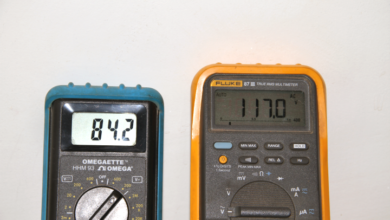The Power of Holistic Recovery in Modern-day Rehabilitation

Table of Contents
- Introduction to Holistic Recovery
- The Benefits of Comprehensive Care
- Critical Holistic Practices in Rehabilitation
- The Role of Nutrition and Exercise
- Mindfulness and Mental Health
- The Importance of Community
- Real-life Success Stories
- Finding the Right Holistic Recovery Center
Holistic recovery approaches in modern rehabilitation focus on treating the whole person—mind, body, and spirit. Individuals address physical dependence and emotional and psychological well-being by integrating therapies like mindfulness, exercise, nutrition, and counseling. This comprehensive approach promotes lasting recovery by empowering individuals to heal in all aspects of their lives.
Introduction to Holistic Recovery
Holistic recovery approaches rehabilitation by considering the complete person, not just the addiction. This method aims to heal through various practices encompassing physical, emotional, and spiritual well-being. One notable example of this approach is Heartwood Recovery, which integrates multiple therapeutic modalities to foster comprehensive healing.
Unlike traditional treatments that frequently focus primarily on addiction, holistic rehabilitation gives attention to every element of an individual’s life. This strategy targets the core causes of addiction, facilitating long-term recovery and a healthy lifestyle. It emphasizes that addiction is a complicated disorder, typically rooted in psychological, physiological, and social aspects. By treating the person as a whole, holistic recovery aims to rebuild lives on a new foundation of balance and well-being.
The Benefits of Comprehensive Care
Adopting a comprehensive approach to recovery can significantly increase success rates. Studies have shown that integrating multiple therapeutic modalities can foster a more effective and long-lasting recovery process. Research from the National Center for Biotechnology Information supports the benefits of a multifaceted treatment plan.
Comprehensive care involves various therapies that cater to an individual’s unique needs. This could include medical treatment, counseling, physical exercise, nutritional guidance, and mindfulness practices. Such a comprehensive approach helps address the underlying issues that contribute to addiction rather than merely treating the symptoms. By providing a tailored and all-encompassing treatment plan, individuals are more likely to find strategies and practices that resonate with them, increasing their commitment to recovery.
Critical Holistic Practices in Rehabilitation
Each individual’s road to recovery is unique, and holistic rehabilitation offers a wide range of therapies to facilitate this journey. Some critical practices include:
- Meditation and Mindfulness: These practices help manage stress and improve mental clarity. Learning to focus on the present moment can reduce feelings of anxiety and prevent relapse.
- Acupuncture: Often used to treat physical ailments and promote overall well-being, acupuncture can help reduce withdrawal symptoms and cravings.
- Art and Music Therapy: Creative outlets can be incredibly therapeutic and help express emotions that might be difficult to verbalize. Engaging in such activities may develop a sense of success and joy, which is crucial for emotional recovery.
- Physical Fitness Programs: Regular exercise helps restore physical health and reduce stress. Yoga, swimming, or walking can significantly improve mood and physical well-being.
- Nutritional Coaching: A balanced diet is crucial for physical and mental health and aids recovery. Proper nutrition can restore chemical balance in the brain and improve overall body function.
The Role of Nutrition and Exercise
Nutrition and exercise are essential for holistic recovery, physical health, and mental and emotional well-being. A nutritious diet, complete with vitamins and minerals, helps rebuild the body, especially following a drug addiction injury. Proper nutrition rebuilds neurotransmitters and hormone balance, disrupted by addiction. Regular exercise boosts mental health by releasing endorphins, which are mood-lifting. Combining these aspects enhances recovery prospects and can serve as a healthy coping technique for stress, cravings, and destructive emotions. Exercise routines can be customized to individual preferences, ranging from rigorous sports to calming activities like yoga or tai chi.
Read more: Streamlining Payroll Systems for Startups: Key Insights and Best Practices
Mindfulness and Mental Health
Mindfulness practices like meditation and yoga are excellent ways to reduce stress and anxiety throughout recovery. Psychology Today says mindfulness can also enhance emotional stability and improve coping mechanisms.
These activities emphasize living in the present moment, which might lessen the urge to fixate on past errors or future problems. This mental clarity and emotional balance are vital for maintaining long-term sobriety. Mindfulness fosters greater self-awareness and acceptance, empowering individuals to make healthier choices and develop more constructive thoughts and behaviors. Regular mindfulness can rewire the brain to respond more calmly and thoughtfully to stressors, breaking the cycle of destructive patterns.
The Importance of Community
Community support is crucial for recovery, providing emotional backing, a sense of belonging, and shared experiences. It helps folks understand they are not alone in their path, offering support and accountability. This social support may be a tremendous incentive to stay sober. Shared experiences and friendships create a network of support where members can offer insights, share challenges, and celebrate victories together. This dynamic can significantly impact motivation and prevent relapse by reinforcing positive habits and mental states, ultimately preventing relapse.
Finding the Right Holistic Recovery Center
Selecting a recovery center is crucial for personal recovery goals, as it involves researching facilities, understanding treatment methodologies, and ensuring they align with individual needs. Factors to consider include staff qualifications, therapy types, and the center’s philosophy. A good center should promote holistic healing and provide transparency about treatment options, success rates, and patient testimonials. Aftercare support and resources also play a significant role in long-term recovery success. A supportive environment with a proven track record is essential for successful recovery.



